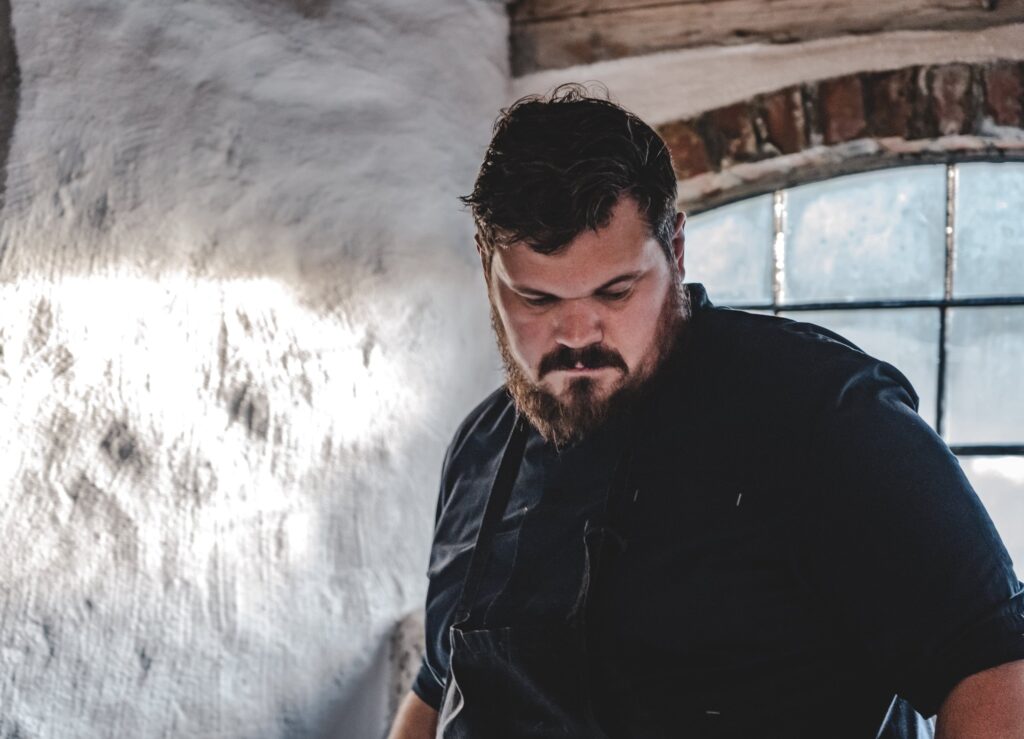Right photo: Edvind Natvig
Halvar Ellingsen
Kvitnes Gård, Kvitnes, Norway
What inspired you to become self-sufficient, and what are the biggest challenges?
-Our main motivation was to create a truly sustainable and responsible food system, where we know exactly where everything comes from. We haven’t bought vegetables, herbs, flowers nor salads since June 2022. We raise our own meat here at the farm, and have wild sheep, cows, pigs, chickens, goats, and quails.
What are some of your most effective sustainability strategies?
-As the growing season here is so short, food storage is a key aspect for our work. We have a our root cellar for food storage, which minimizes energy consumption. We also recycle kitchen waste as compost or pig feed, and we’ve converted our tractor to run on used cooking oil instead of diesel. Additionally, we’ve installed WiFi-controlled thermostats to optimize energy use in our guest accommodations and added hourglasses in showers to encourage water conservation.
How does sustainability influence your employees’ work?
-Our employees are involved in all aspects of farm life, from planting and harvesting to animal care and food preparation. This hands-on approach creates a deep respect for food and sustainability. We also provide education on topics like composting and animal welfare, ensuring that these lessons stay with them beyond their time here. We adapt work schedules to daylight availability in winter, supporting mental well-being.
What changes would you like to see in sustainability certifications?
-While certifications can be useful, they should provide clear, constructive feedback. Right now, we receive the same sustainability rating as restaurants that import much of their food and don’t engage in local production or recycling. A system that acknowledges efforts like ours—self-sufficiency, waste reduction, and ethical labor practices—would be more meaningful and help drive real improvements in the industry.
Read the review Kvitnes Gård
Kvitnes Gård
Kvitnes Gård
View

